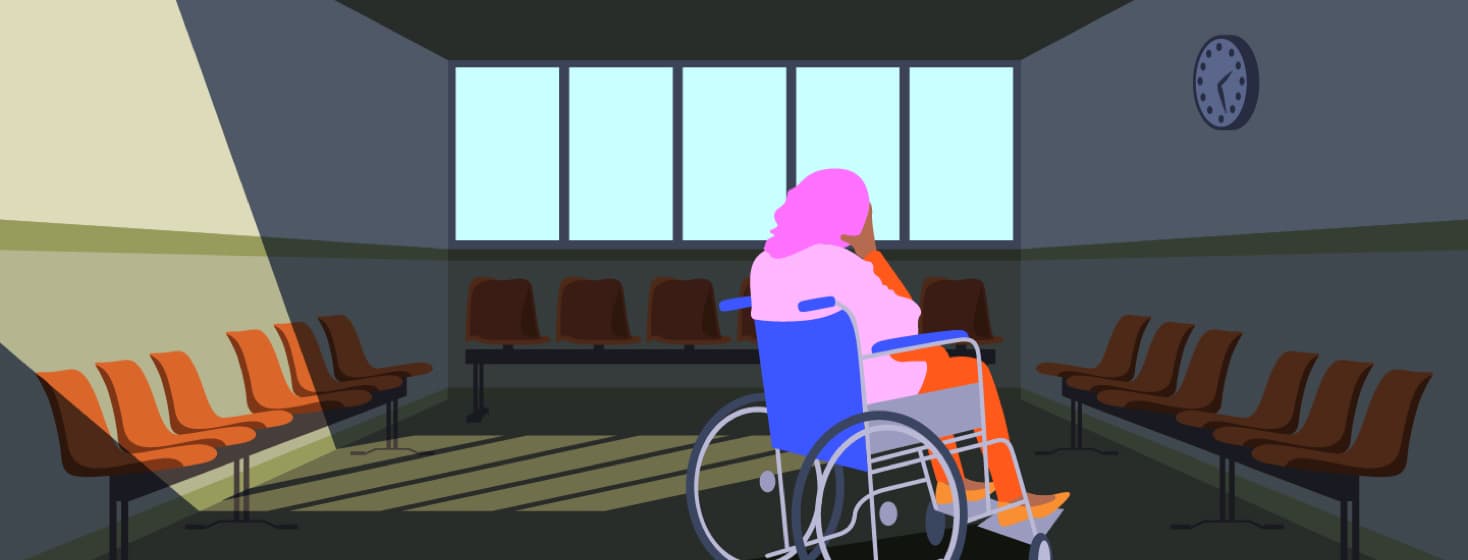Perspectives Matter: Understanding Loved Ones
Having an extended hospital stay is a common shared experience for heart failure patients. Some loved ones will rush by your side, but others will never show up. When people do not show up, it can lead to a lot of frustration for the patient.
Have you ever heard someone say, “I didn’t come to visit because I just don’t like hospitals”? Why wouldn’t your friends or loved ones show up? Do they not understand these visits are usually life or death for us? From the patient’s perspective, this seems like a sorry excuse. Honestly, it is just an excuse for some, but NOT everyone. Suffice to say, our trauma does not just affect us. In some cases, this perspective matters. This may explain why some people do (or do not) “show up.” So, let’s look at some possible scenarios to get a better understanding.
Scenario 1: Holding on for dear life
Different life experiences mold our perspectives about things. Abandonment is one such life experience. In some children, feelings of abandonment can lead a person to attach (or maybe over-attach) to other people they feel are significant. This is the case with one person who ALWAYS came to my side in the hospital. Whether I was in the hospital for a few days or a few weeks, this person could be counted on for overnight visits, even if it was multiple nights. Although motivated by love for me, a larger motivation was the need to NOT feel “abandoned” again. Even though losing me would not be the exact same as the abandonment experienced when they were younger, the idea of losing me triggered this fear. Therefore, this person’s perspective was to hold on for dear life.
Scenario 2: Losing a true love
True, unconditional love between two people does exist. Yet, it is so rare, that not everyone knows how to handle it when they experience it. This is especially true when it requires understanding each other’s perspectives in times of need. This was the case for another visitor. Although we love each other unconditionally, my trauma was a lot for this person to handle. In addition to taking charge of family obligations, this person had to watch and be reminded of my suffering with every hospitalization and visit. Therefore, being with me in the hospital was a very painful experience, despite their wanting to be with me and their desire for me not be alone. This came from the perspective of losing a true love. Fortunately, on nights my true love could not stay, the visitor from scenario 1 provided relief to and for this person, because I was never truly alone.
Scenario 3: Reliving trauma over again
With trauma comes the risk of post-traumatic stress (and stressors). This was the case for my last example. When they were younger, this visitor had a loved one suddenly fall ill to an unexplainable viral disease leaving the person disabled. Years later, this visitor faced a similar trauma. Similarly, my heart failure was an unexpected disability. Therefore, two significant people in this visitor’s life faced life threatening medical conditions leading to disabilities. So, although this person would visit sporadically, they would not volunteer for overnight visits. Coming to see me in the hospital was a constant reminder of the previous trauma. Furthermore, not knowing the underlying cause left the visitor wondering if it could happen to them, if something genetic was going on. These feelings came from the perspective of reliving trauma again.
Perspectives really do matter
As patients, we can sometimes have “blinders on” to what others may be experiencing because we are focused on survival. We understand what it’s like on our end of the condition, but we tend to forget what others are experiencing.
Sure, some people show their “true colors” and must simply be removed from your journey going forward. However, some don’t show the support we expect from them because they don’t understand what we are going through. Other times, people are going through their own struggles in response to our trauma and don’t know how to express it or even realize they have it.
Ultimately, both patients and loved ones need to communicate their perspectives to each other to minimize frustration on both ends. This will help alleviate unnecessary stress, which could only make things worse. Fortunately, we have plenty of resources here to help with those discussions.
Heart failure, visitors, support: Perspectives matter
Have you experienced being in the hospital with heart failure and wondering why a loved one does or does not visit, stays overnight, or keeps their visits short? Can you relate to any of the scenarios Latoya shared? Share your experience, and how you felt, with the community by clicking the button below.

Join the conversation